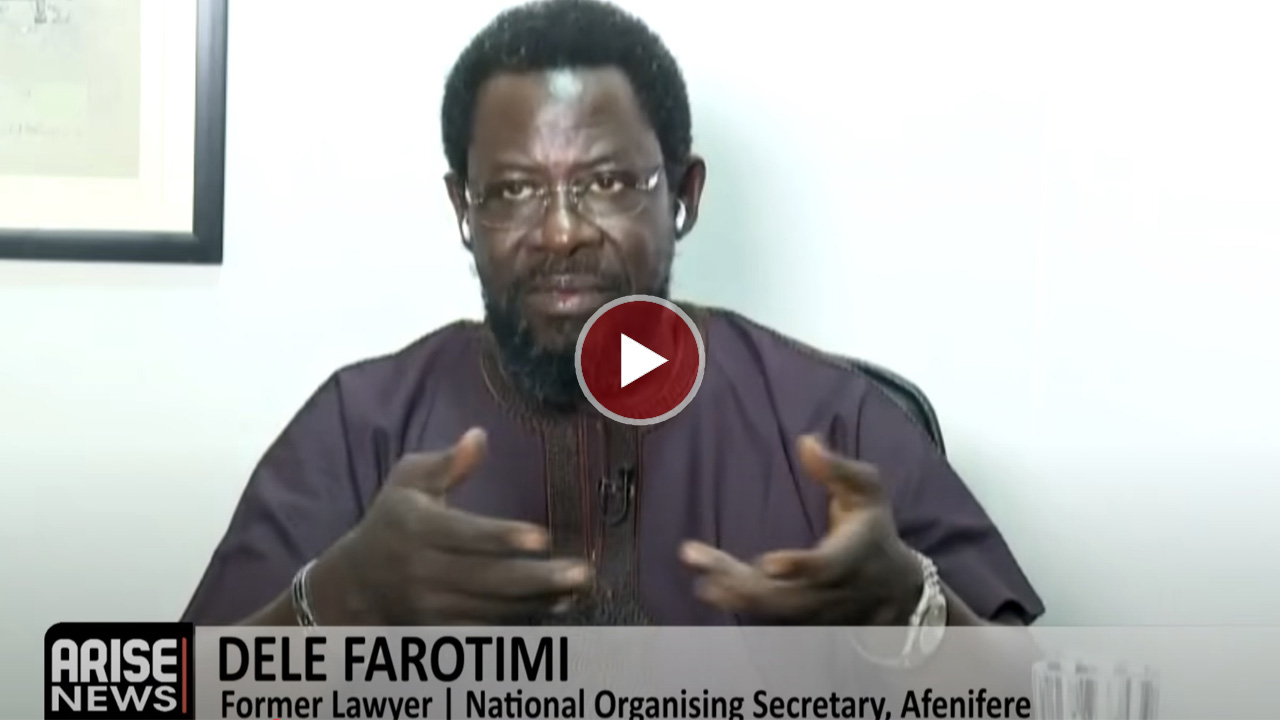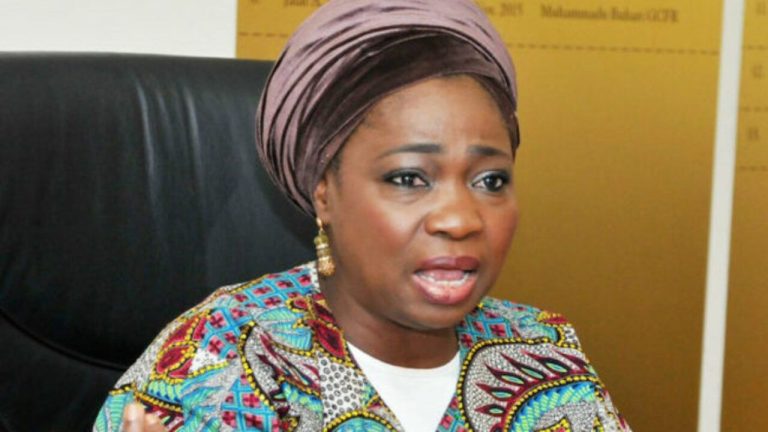

Political activist and National Organising Secretary of Afenifere, Dele Farotimi, has declared that activism has failed in Nigeria, insisting that only a peaceful revolution can bring about meaningful change in the country.
Speaking in an interview with ARISE News on Tuesday, Farotimi rejected the label of “political activist,” describing himself instead as a Nigerian speaking out against the pains of “victimhood.” He also stressed that Afenifere is not just a socio-cultural organisation but a political one.
“However long you stood in front of a mango tree demanding oranges of the mango tree, you will still get only mangoes from that tree. For as long as any Nigerian… first, let me clear two things: I’m not a political activist. I’m just another Nigerian who speaks out about the pains of my Nigerian victimhood. Whether that now comes across as a political activist or a human rights activist, you’ll find some name for it. But let’s be clear, I am not, because that is no longer a lofty company in which one will seek to belong,” Farotimi said.
“Each and every one of yesterday’s human rights activists are either in government today or they’ve lost their voices. So it is not a good company to keep. Second thing, Afenifere is a political organisation, it is not a sociocultural organisation. Now having addressed those two issues, let me quickly say this: activism is not going to help Nigeria. The Nigerian situation is not going to be helped because we decided to have episodic responses or reactions to a systemic failure.”
Citing the #EndSARS movement as an example, he argued that activism only triggers temporary reactions but does not fix Nigeria’s deep-rooted systemic rot.
“Activism led to what you will call EndSARS. A group of individuals looked at a single issue, police brutality, and they sought to act to ensure that police brutality does not affect the Nigerian populace. That snowballed into what almost became a revolution. That shows you that activism is not going to help Nigeria. We have systemic failure… Activism has failed in Nigeria, we have to admit to that.”
Farotimi emphasised that protests alone cannot produce change because the Nigerian state is designed to be “deaf and dumb” to citizens’ demands.
“When I say that activism is a failure in Nigeria, I am pointing out the fact that it hasn’t changed anything of substance, because when you are protesting to a system that is designed to be deaf and dumb, you can shout all you care. It wouldn’t listen to you because it’s not designed to be responsive. If your vote has been discounted by a system that has produced a governor that is so disconnected from the people that we can remove him with impunity, the only reason the people kept quiet is because there is a disconnect.
“Nigeria requires a change of direction. It is not about activism. It is about requiring a revolution. The challenge for each and every one of us is to find a way to deliver that peacefully. Outside of finding a peaceful way to change Nigeria, you can be as active as you care in seeking to engage with this system. It is designed to function on impunity. It cares nothing for your opinions.”
Rejecting the notion that Nigerians are docile or cowardly, he argued that citizens have only disconnected from the process of change because leaders and activists have failed to provide a credible alternative.
“Nigerians are not mumus. That characterisation of Nigerians is a misunderstanding. The disconnect from the process of change is what has led them to be as quiet as they appear to be. The same people we think are mumus, they cross the Mediterranean after crossing the Sahara. Those are not cowards. Those are actions of desperate people.
“If we, who are meant to paint them a picture of a better alternative and then connect them to the struggle, have failed to connect them, we cannot turn around and blame them for not joining a purposeless argument. What picture have we painted for them of the day after the change that we are seeking? When Buhari was being sold in 2014, that fraud was sold as change and Nigerians bought it hook, line and sinker. They are in this mess today because they believed in that mess. In 2023 they voted their conscience and voted for a change and the system showed clearly that it is not interested in peaceful change.
“So it is now for those of us who believe that change should come to find a peaceful way of communicating that to the Nigerian people and connecting them to it. We can’t cop out and blame them for not acting when we have failed to show them an alternative. It is our failure. It is not the failure of the people on the street. The Nigerian middle class is morally, intellectually bankrupt. It has not managed to communicate any alternative to the people. The political class has become one, the religious class is consumed by corruption and greed. So who is painting a different picture for the Nigerian? How do we blame them for not acting?”
On whether activism puts his life at risk, Farotimi said he has long accepted the dangers that come with his position and refuses to live in fear.
“I was born to do what I am doing. I’m not in any fight with anyone except the evil persons who have ruined the beautiful country into which I was born. I don’t hide. I was in Ekiti to greet my former cellmates just yesterday and I went by road. I was in Ibadan for the Afenifere meeting today. A man will live only once and when it is time to go, we will go.
“In 2021, I addressed a press conference where I made clear that there was a plot against my life from elements within the Lagos State Government. I gave a petition at the time to both the police commissioner in Lagos and the DSS director in Lagos. Nothing came out of it. The same elements are in the people who are ruling Nigeria today, so why should I be running away from anybody? If it has been given to them to kill me, it will happen, but if it hasn’t been given to them, there’s nothing they can do to me.”
He described Nigeria’s governance structure as irredeemably broken, stressing that protests should no longer be about reforms but about ending the system entirely.
“Protests are very important, but we should also properly identify the issues. If we are protesting to change anything in Nigeria, we are expecting this government or this system to make those changes. It is a lie. It will not happen. The people who invaded my offices to drag me to Ekiti, based on a charge unknown to law, were wearing RRS vests. That was the same SARS that people died to end. They changed the name. If you go to some of their formations, they are still using SARS. They didn’t bother to change the stationeries. That is what protests produced.
“This system is unamenable to change. So if we are protesting, let us understand that the protest should be to end this system so that we birth a new country. Our challenge is to make that as peaceful as it can possibly ever be. Swear ourselves to peaceful protests, but be clear as to the objectives. Nothing will change under this system. They are not interested in any change.
“It is the victims who have to recognise the fact that they are victims, and it is until when they have concerted their efforts as a collective that they can arrest any concessions and get this system to change. This system is not designed to deliver anything based on protests of any sort. It is deaf and dumb, impervious to demands. Instead of anything changing over the last 65 years, we’ve had generational failures.”
Farotimi concluded by insisting that responsibility for change rests with leaders, activists and intellectuals who must provide clarity, direction and a roadmap that connects ordinary Nigerians to the struggle.
“We’ve done a lot of talking, but the unfortunate thing is that we’ve talked over the people’s heads. We’ve spoken over them without connecting them to the issue. That’s the first thing. The second failure is that we’ve not placed a plan of action on the table for the people to either rally behind or reject. Until then, nothing will change,”he said.
Boluwatife Enome



